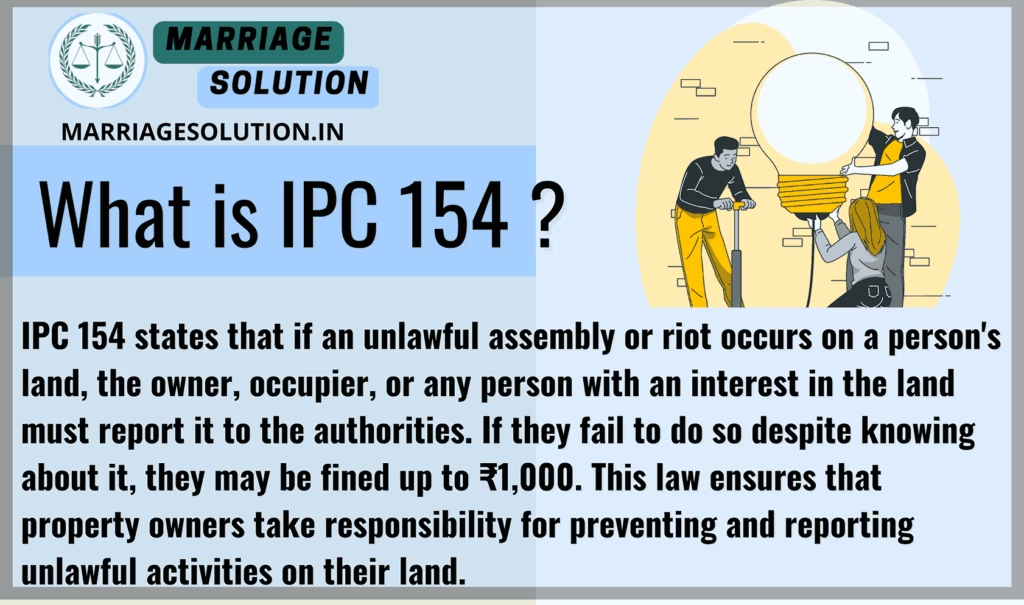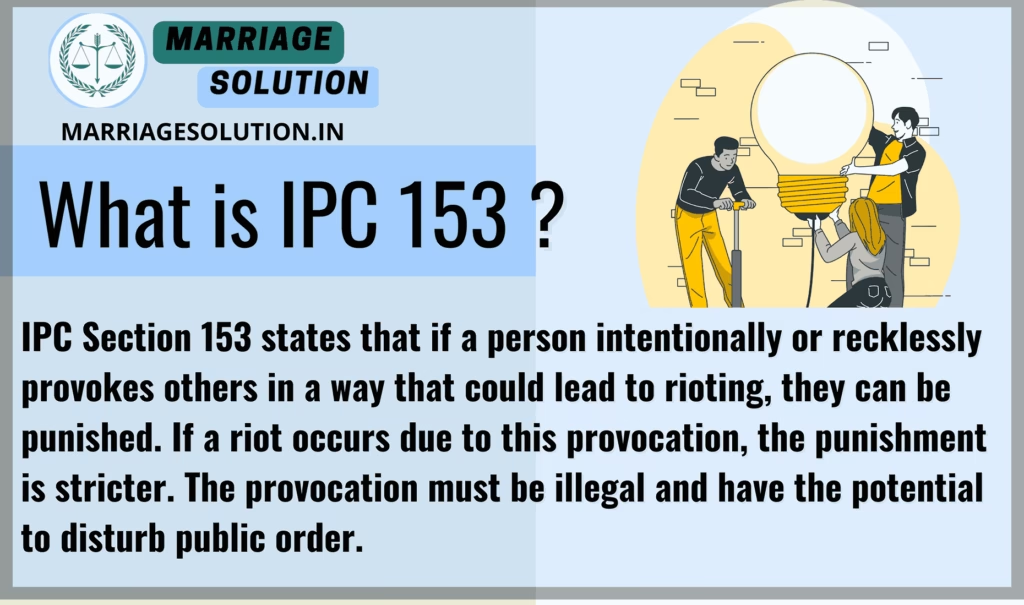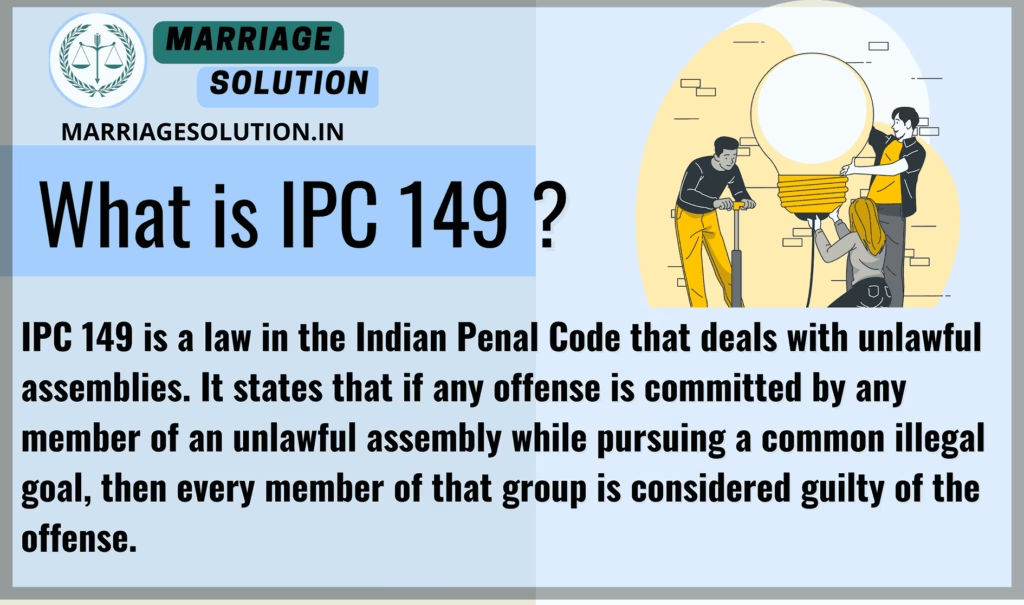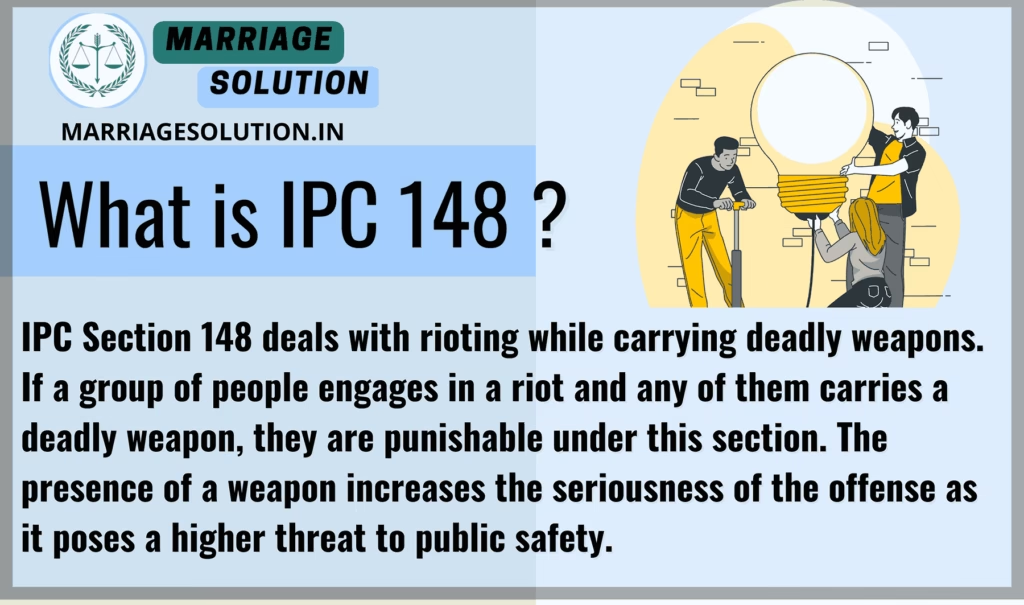IPC 154

IPC 154 : its role in holding property owners accountable for riots.
153 IPC

153 IPC , the Indian Penal Code section on promoting enmity between groups and how to avoid such offenses.
152 IPC

152 IPC is about stopping people from attacking or obstructing public servants, like police officers, when they are trying to control riots or unlawful gatherings.
IPC 151
IPC 151 deals with the offense of knowingly joining or continuing in an unlawful assembly.
IPC 150

IPC 150 role in preventing recruitment for unlawful acts.
149 IPC

149 IPC : its role in holding groups accountable for unlawful acts.
IPC 148

IPC 148 : Punishment Its role in punishing armed rioting to protect public safety.
